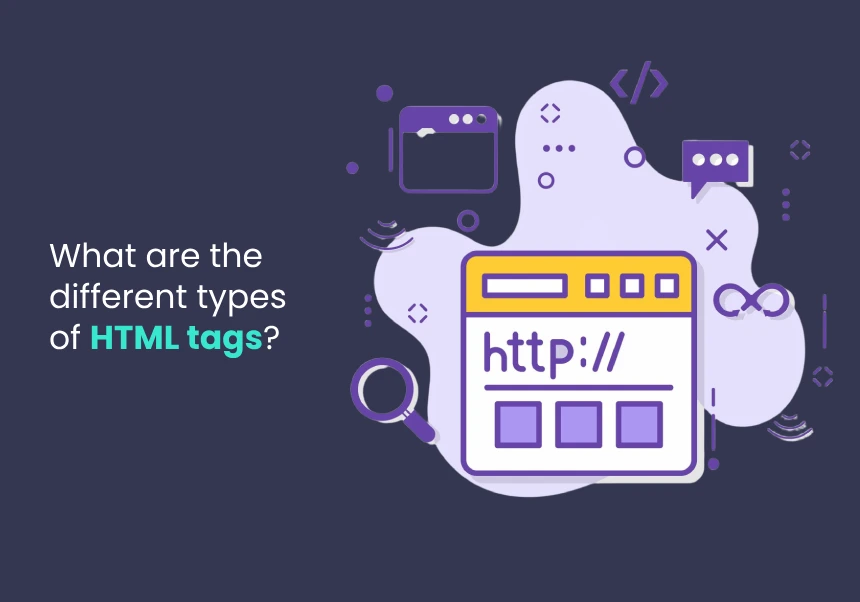What are the different types of HTML tags?
HTML tags are the building blocks of an HTML document. They define the structure and content of web pages. The tags can be broadly categorized based on their function and…
Unlock the Pulse of the Present
Just for You
Recent News
Lazy Loading in React.js: Boosting Performance and Reducing Load Time
In modern web development, performance plays a crucial role in user experience. One technique that significantly improves performance is lazy loading. In this blog, we will explore what lazy loading…
How to Improve the Performance of React Applications
React is a powerful library for building interactive user interfaces, but performance issues can arise if not optimized correctly. In this blog, we'll explore the best techniques to improve the…
System Design and Frontend System Design: An In-depth Overview
Introduction System design is an important component of software engineering that entails the system architecture, components, and data flow of a system to satisfy particular demands. It is vital in…
What is NodeJS and its main features?
Understanding Node.js and Its Key Features Node.js has revolutionized the way developers build web applications by enabling server-side JavaScript execution. It is an open-source, cross-platform runtime environment that operates on…
Mastering Star Rating Systems: Best Practices and Optimized Code Examples
Star rating systems are a common and effective way to collect user feedback on products, services, or content. They offer a quick visual representation of quality and satisfaction levels. In…
What are the drawbacks of React?
Understanding the Drawbacks of React: Key Considerations for Developers React is one of the most popular JavaScript libraries for building user interfaces, particularly for single-page applications. Developed and maintained by…
What is Synthetic Event?
A Synthetic Event in React is a wrapper around the native DOM event that provides a consistent and cross-browser interface for handling events in React applications. Why Synthetic Events? Key…
What is React Fiber and its importance in react?
React Fiber is the reimplementation of React's core reconciliation algorithm, introduced in React 16 (2017).It replaced the old React stack algorithm to improve performance and user experience, especially for complex…
What is React Router Dom in React?
React Router DOM is a popular library in React that is used to handle navigation and routing in a React application. It enables your React app to have multiple pages…
What is localization in React?
Localization (l10n) in React refers to the process of adapting your application to support multiple languages and regional preferences.This ensures that users from different regions can view the content in…
What are Benefits in React?
What are the Benefits of Using React? React is a popular JavaScript library for building user interfaces, especially single-page applications (SPAs).It is maintained by Facebook and has gained widespread adoption…
What are the Lexical Scope in JavaScript?
Lexical scope in JavaScript means that the scope of a variable is determined by its position in the source code (where it is written) and the nested structure of functions.…
What are the async and defer attributes in the “script” tag?
What are the async and defer Attributes in the <script> Tag? When loading JavaScript in an HTML document using the <script> tag, the async and defer attributes control how the…
Is JavaScript a synchronous or asynchronous language?
JavaScript is primarily a synchronous, single-threaded language, but it also supports asynchronous programming through features like callbacks, promises, and async/await. 1. What Does Synchronous Mean? Synchronous execution means the code…
Difference between document.createElement and document.createElementFragement in JavaScript?
Difference Between document.createElement() and document.createDocumentFragment() in JavaScript 1. document.createElement() This method creates a single HTML element. Syntax: javascriptCopyEditconst element = document.createElement('div'); Key Points: Example: javascriptCopyEditconst div = document.createElement('div'); div.textContent =…

Mini Games

Wordle
Guess words from 4 to 11 letters and create your own puzzles.

Letter Boxed
Create words using letters around the square.

Magic Tiles
Match elements and keep your chain going.

Chess Reply
Play Historic chess games.
















